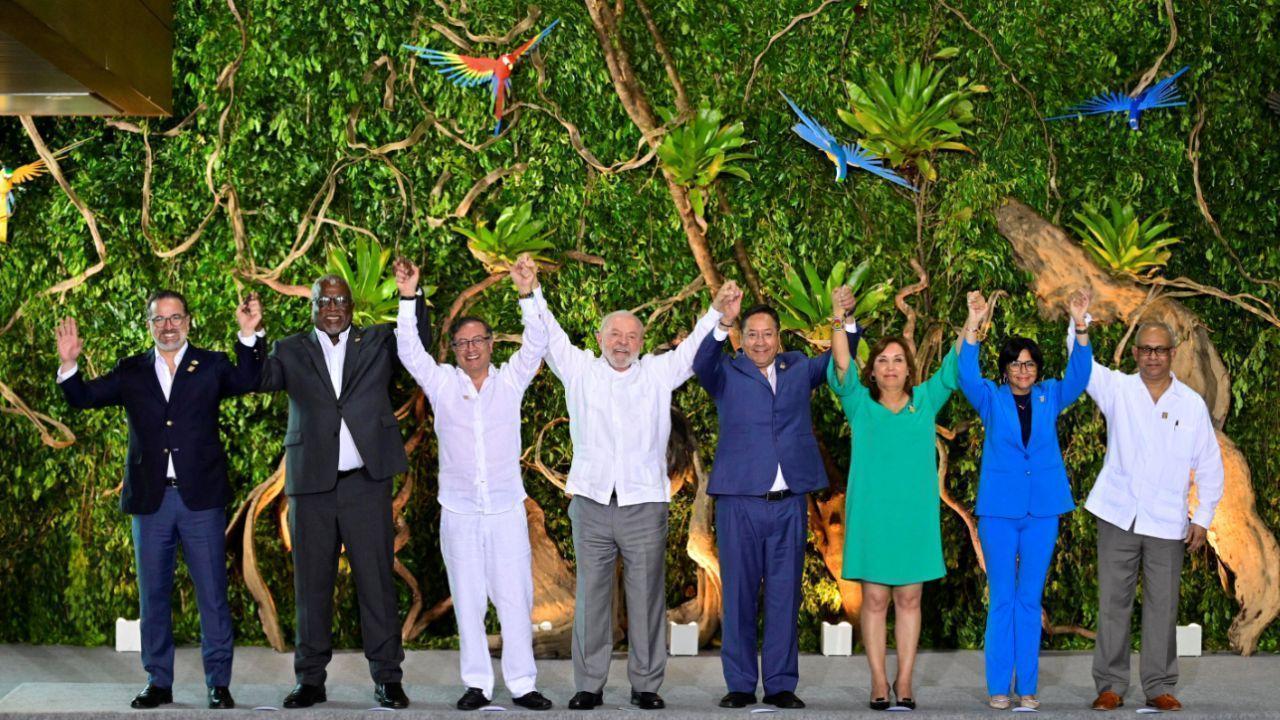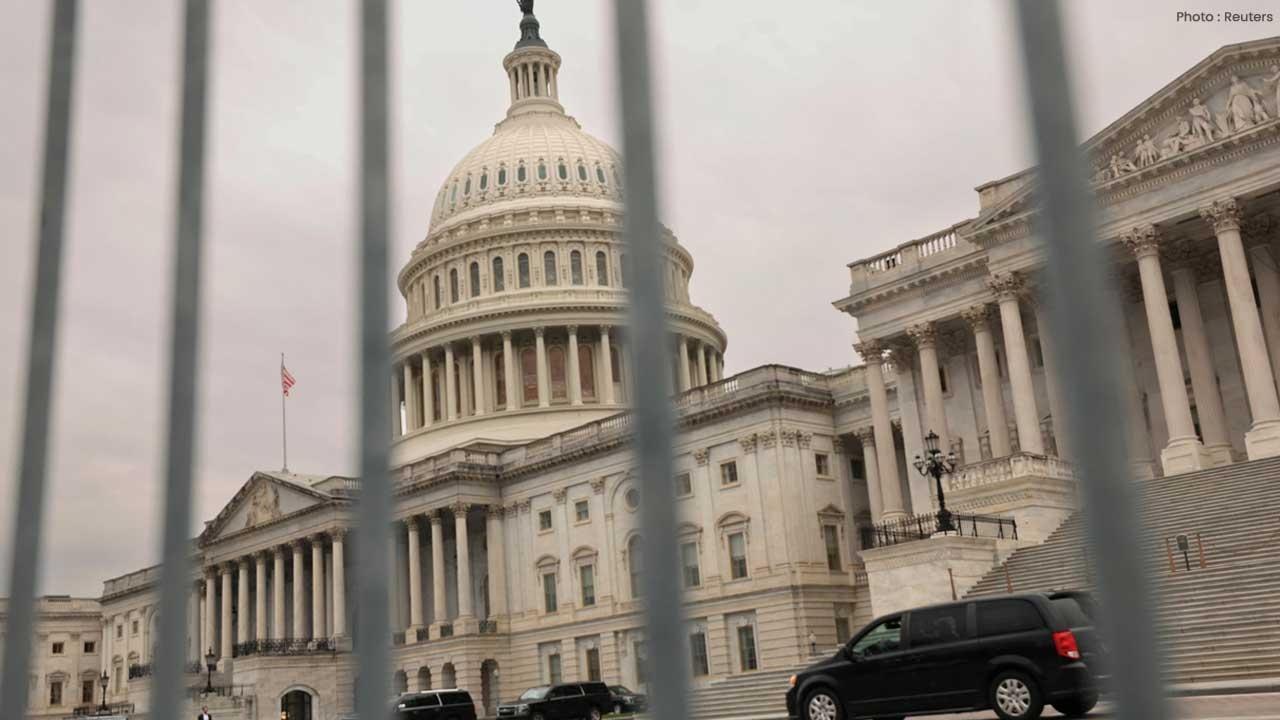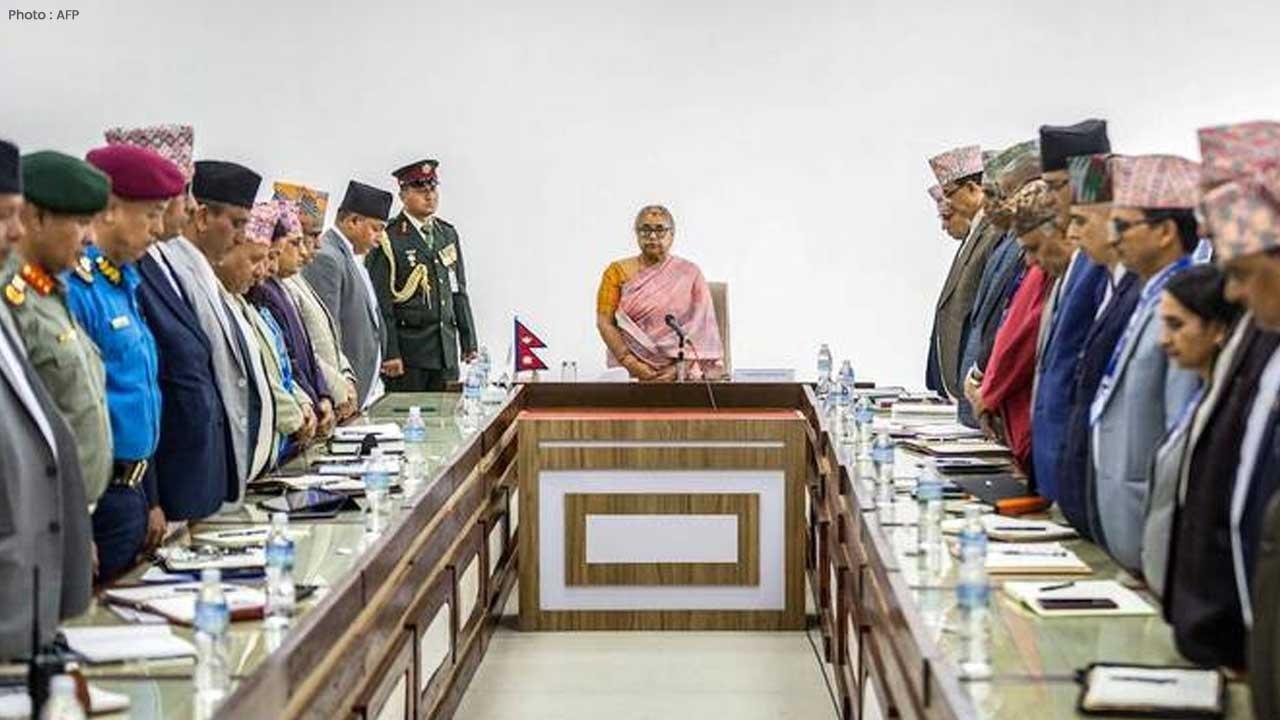
Post by : Priya
Photo:Reuters
In the heart of South America, where the lush green canopy of the Amazon rainforest stretches endlessly over nine countries, a powerful collaboration is taking shape—one that blends ancient wisdom with modern responsibility. Amazon, the global e-commerce and technology giant, has embarked on a meaningful partnership with Indigenous communities to promote sustainable forestry, empower local populations, and protect the rainforest for future generations.
This initiative is more than a corporate project; it is a shared mission to safeguard one of the planet’s most critical ecosystems while respecting the cultural and environmental knowledge of the people who have lived in harmony with it for centuries.
Why the Amazon Rainforest Matters
Often referred to as the “lungs of the Earth,” the Amazon rainforest is home to more than 10% of the world’s biodiversity. Spanning over 5.5 million square kilometers, it plays a central role in regulating the planet’s climate by absorbing massive amounts of carbon dioxide and producing vital oxygen.
Yet, this precious ecosystem is under grave threat. Illegal logging, mining, industrial agriculture, and wildfires have led to the loss of millions of hectares of forest cover over recent decades. The consequences are devastating—habitat destruction, rising global temperatures, and displacement of Indigenous communities.
As the urgency to address climate change increases, the role of the Amazon becomes even more critical. And that is where sustainable forestry steps in as a key solution.
Understanding Sustainable Forestry
Sustainable forestry refers to managing forests in a way that meets the needs of the present without compromising the ability of future generations to benefit from them. It focuses on balancing environmental, economic, and social factors. Rather than large-scale clear-cutting, sustainable forestry supports selective harvesting, reforestation, habitat protection, and long-term forest health.
This approach is not new to Indigenous communities, who have been practicing responsible stewardship of the land for centuries. Their customs, beliefs, and daily lives are deeply tied to the forest. What is new is the global recognition of their importance and the growing efforts to include them as equal partners in conservation.
Amazon’s Partnership Model: A Groundbreaking Approach
Amazon's latest initiative brings Indigenous knowledge and corporate resources together. The partnership centers on three main goals:
Through this alliance, Amazon aims to support community-led forest management, invest in eco-friendly businesses, and ensure Indigenous people benefit directly from the land’s resources.
The collaboration includes building forest-based enterprises like sustainable timber harvesting, eco-tourism, and organic farming. Amazon will provide logistical support, digital infrastructure, and market access for products made by Indigenous artisans and farmers. In return, the communities bring deep ecological knowledge, spiritual respect for nature, and generations of forest experience.
This partnership has already begun in regions across Brazil, Peru, Colombia, and Ecuador, with plans to expand further.
Empowering Indigenous Voices
A defining feature of this project is the central role given to Indigenous leadership. These communities are not being treated as passive beneficiaries—they are the decision-makers. From planning to implementation, local leaders help shape every aspect of the initiative.
Indigenous organizations have long called for this type of inclusion. Many have opposed harmful extractive industries and have often been excluded from decisions affecting their lands. This collaboration marks a shift toward justice and equity.
By recognizing land rights, supporting traditional governance, and investing in education and capacity building, Amazon is setting a new standard for corporate engagement in environmental issues.
How This Partnership Works on the Ground
Let’s take a closer look at how the initiative works in practice.
1. Sustainable Timber and Agroforestry
Rather than large-scale deforestation, communities are trained to harvest timber selectively, ensuring young trees are left to grow. Non-timber forest products—like nuts, fruits, oils, and medicinal plants—are also promoted. In agroforestry models, trees are integrated with crops and animals, preserving biodiversity and improving soil quality.
2. Eco-Tourism
In areas where tourism is possible, communities manage guest lodges, forest walks, and cultural education experiences. These activities generate income without harming the environment.
3. Handicrafts and Market Access
Indigenous artisans produce textiles, baskets, ceramics, and jewelry using natural materials and traditional designs. Amazon’s global marketplace helps connect these products to ethical buyers around the world.
4. Education and Technology
Young community members are offered training in digital tools, sustainable land management, and environmental monitoring. Drones, solar-powered sensors, and mobile apps help track forest health and detect illegal activities.
5. Revenue Sharing and Fair Pay
One key element of this partnership is fair compensation. Indigenous workers and entrepreneurs are paid directly, with transparent revenue-sharing agreements. Community funds are also created to support local schools, clinics, and clean water projects.
Environmental Benefits
This model brings clear environmental advantages:
Social and Economic Impact
The social outcomes are equally meaningful:
Global Praise and Recognition
The initiative has received wide support from environmental NGOs, Indigenous rights organizations, and international climate bodies.
The United Nations Forum on Forests praised the model for aligning with the UN’s Sustainable Development Goals (SDGs), especially Goal 13 (Climate Action), Goal 15 (Life on Land), and Goal 8 (Decent Work and Economic Growth).
Environmental advocates say it’s a model worth replicating. “This is the kind of leadership we need from global companies,” said one representative from the World Resources Institute. “Not just profit-making, but planet-saving.”










NBA Friday Recap: Powerhouse Wins for Miami, LA, Milwaukee, and Clippers
Miami, LA Lakers, Milwaukee, and Clippers triumphed in a thrilling NBA Friday, showcasing standout p

Doncic Shines with 49 Points in Lakers' 128-110 Victory over Timberwolves
Luka Doncic dazzles with 49 points as the Lakers secure a 128-110 win against the Timberwolves, show

Kings Triumph Over Jazz 105-104 with Last-Minute Sabonis Effort
The Sacramento Kings edged out the Utah Jazz 105-104, with Domantas Sabonis making the decisive shot

Argentina's Friendly Match Against India Delayed, New Date to be Announced
The friendly match between Argentina and India in Kochi has been postponed due to FIFA approval dela

Rohit and Kohli Conclude ODI Journeys in Australia with a Victory
Rohit Sharma and Virat Kohli bid adieu to Australian ODIs with a final win, forming a 168-run partne

George Russell's Wrestling Mask Antics at Mexican Grand Prix
George Russell donned a wrestling mask to enjoy the Mexican Grand Prix from the stands, providing a